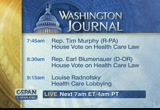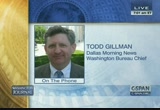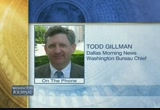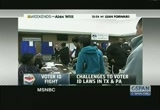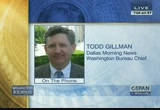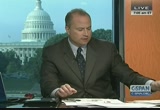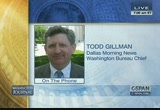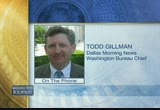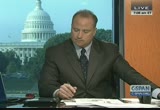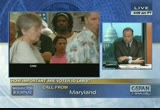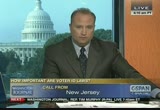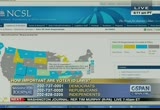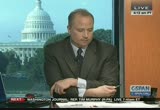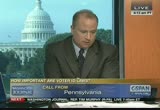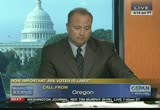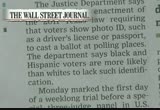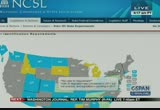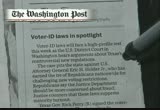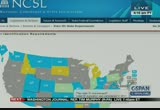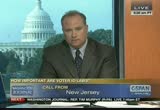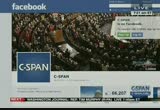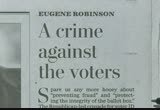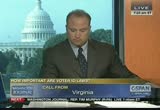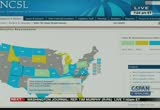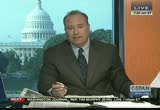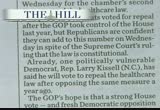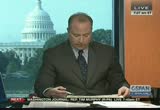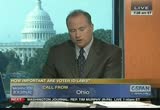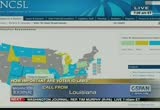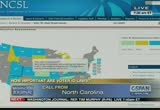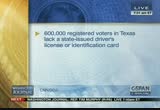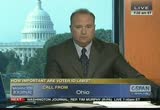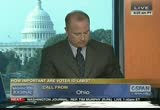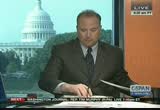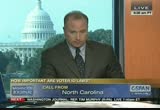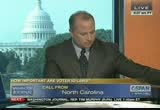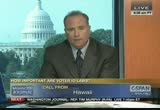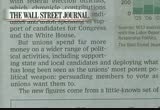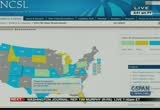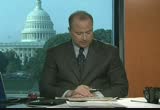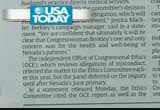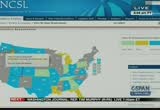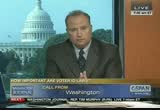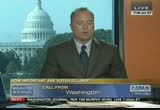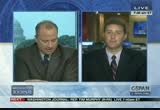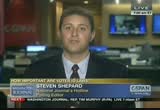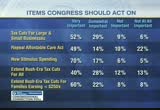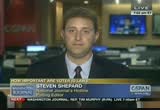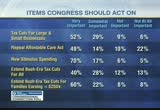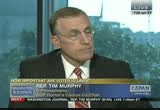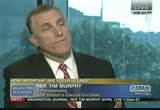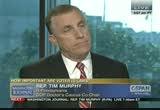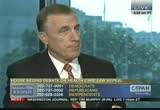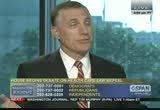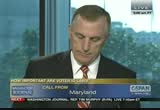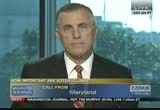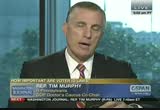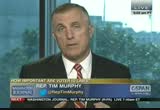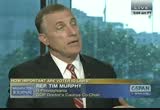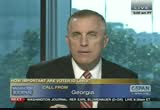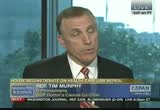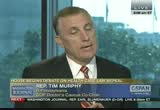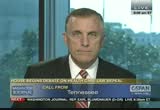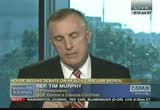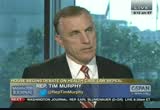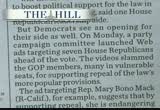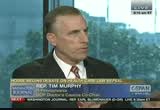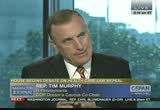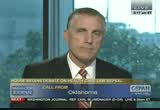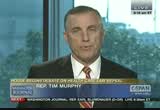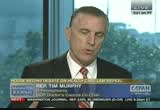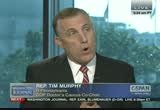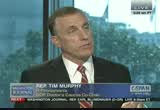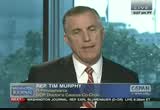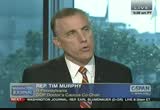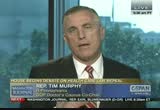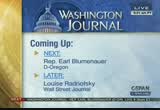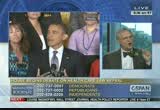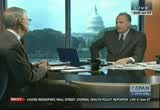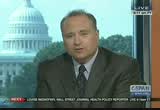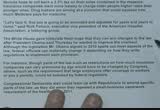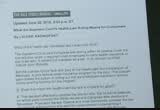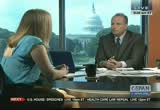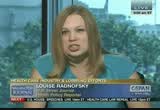tv Washington Journal CSPAN July 10, 2012 7:00am-10:00am EDT
7:00 am
also louise radnofsky talks the healthcare bill and implementing the law. >> the following is a supreme court ruling on the healthcare law. the house today will start one more gop attempt to repeal the law. the hill report have some vulnerable democrats will back this republican-led effort. we expect several hours of debate tomorrow. final vote tomorrow on all of this. the president heads out to iowa today to talk about his plan concerning taxes on the middle class. in the meantime, mitt romney had a huge fundraising lead in the month of june. we'll give you some details a
7:01 am
bit later. voter id laws from the spot light this week. very high profile test in u.s. district court here in washington regarding texas's new laws which is causing quite a bit of controversy. how important are voter id laws? what types should be in place. here are the numbers to call, democrats 202-737-0001, republicans 202-737-0002 and independents 202-628-0205. if there's a law in your state, please tell us exactly what it does give us your thoughts. here is the front page of this morning's dallas morning news. story by todd gillman. texas and u.s. lay out voter id arguments. todd gillman join us by phone. give us a history of this texas law and how it came to arise in federal court here in washington? guest: people have been trying to get a federal id law in texas
7:02 am
going back at least about 15 years and in fact, at one point as the republican backers of the current law that's being challenged. like to point out some liberal democrats at one point actually supported the law as well. it passed the texas house in 2005, 2007 but died in the senate. eventually in the 2011 legislature, there was a rule change that the republicans in the senate engineered to make it a little easier to get pass the blocking that was being done. it passed. the justice department is challenging it. texas like more than a dozen other state and some other jurisdictions around the country are subject to section v of the voting rights act which requires
7:03 am
these jurisdictions to get preclearance from the justice department before they make any election law changes, any redistricting plans need to be cleared by justice department. the justice department has denied the preclearance on this. they say it has a discriminatory effect because there are a lot more hispanics and blacks who unlikely to have the sort of photoids that will be required. host: moving forward in district court this week. take a step back for us nationally beginning with the future of the texas law. what does it mean nationally? lots of states are active in this area. guest: there are a lot of states active in this area. some state have manage to enact voter id laws without any sort of problem because they are not under the federal government.
7:04 am
those states, indiana managed to get it through and those state have gone through the supreme court and okay. there was a enormous amount of resentment in states like texas. why they get to do it and we don't get to do it. this case like most of these cases is destined to go to the supreme court eventually. but at the moment, it is a three judge panel in federal district court in washington d.c. where the state of texas is trying to tell the justice department to give it the okay to implement this law. host: as rick perry commented on this publicly? guest: he certainly supported this law. he signed it into law last may i believe it was. may of 2011. host: what are the implications here for this presidential election cycle? guest: that's an interesting
7:05 am
question. i don't think there will be tipping major election in texas one way or the other if the law is implemented in this election cycle. it is the sort of issue that tends to rile up conservatives. if the law is blocked, it will make them angry. it has made them angry. it has been used as a bludgeoned against the obama administration. eric holder, he is a poster boy for much of the anger directly towards the administration over fast and furious and over this as well. the republicans have been bashing the justice department for stmying for something that's
7:06 am
popular. host: anything else we should know as we track the news here? what else should we be looking for? guest: it's going to be interesting to see. we've had one day of trial so far. the state of texas was trying to demonstrate, they started laying groundwork to demonstrate that there was no discriminatory intent to there was no law to discriminate. so far, they really haven't made much inroads in proving there's any sort of fraud on any kind of wide scale that might justify. that's the argument the justice department is making. to the extent there's any person voter fraud that might be prevented by requiring every voter who presents himself or herself as a polling place to
7:07 am
offer a photo id, there's almost no evidence that this exist. it occurs sporadically and occasionally. someone had tried to commit inperson voter fraud. it will be interesting to see over the next few days how these arguments play out. on the one hand, the federal government is trying to prove that it discriminates heavily against minorities because they are more likely not is the ivied you need. the state of texas is trying to prove that there are concerns about people coming in and fraudulently casting ballots. that public concern is enough to justify in law. it will be interesting to see if
7:08 am
either side can prove its case. it doesn't seem like to a lot of texans, if someone could present themselves as a voting place and cast a ballot fraudulently. host: todd gillman, thank you for the id case. here is the headline. mr.gillman writes the legality of the texas controversial voter id law. 1.4million citizens, most of them hispanic or black from voting. time for your calls. lots more written on this morning. owens mills maryland, it's marcy up on the democratic line. caller: , he a suggestion. this voter id thing could very well be solved with one thing.
7:09 am
let's say we use the social security numbers to vote. it probably would include more member voting. two it tells the age of the person who's voting, so you can't have somebody voting. that would solve that right there. it would be honest because, you only have one vote per member. you get your number from the security administration. now, the other thing i would like, republican voters need to ask questions why are the republicans doing this. i believe the republicans do want to take over for the power but there's a reason. i believe it's social security and medicare. i believe they do want to get rid of it. those people making $30,000 or $40,000 in their 50s and 40s think they will have it, they
7:10 am
are not. if republicans get in there, they will use that money to deal with the deficit. host: susan is on the phone from new jersey. good morning. caller: , i -- i live down in florida. i used to be a democrat. when i was down in florida, i had to fill out proper identification to register my card. i got a digital florida driver's license. then we registered to vote. we had to show the id. we voted in one primary down there. i stood there for 5 or 10 minutes. if you're legally here in this country, -- i used to be a democrat. i grew up low income and my
7:11 am
father died 59 years ago. just before i turned 6 years old, my mother never instilled in me. i'm sick and tired personally of the class warfare. i don't like state being stolen by this administration. i don't care how much you have or how little you have. it's your moral value that determine what type of person you are. host: caller there from new jersey. if you go to the website of the national conference of state legislatures, ncsl.org. you can look at each individual state in the country. determine what they have in place. half the state have some type of voter id law.
7:12 am
just about a dozen or fewer a dozen came into play the last couple years. couple facebook comments on all of this this morning. one viewer write, texas would deprive many, thousands of people mostly minorities their voting rights. can't help but wonder if there's some other agenda. another viewer writes, if you have an id to buy beer, travel and cash a check, then you have to have an id to vote. couple facebook comments there. facebook.com/c-span if you want to weigh in there. we also taking your questions bé
7:13 am
they want power. that's the reason why they trying to get those voter laws. america, wake up. you know how hitler got in power. look out. host: pennsylvania robert, what's required of you when you go to the polls? caller: you suppose to have a military id, a drivers id. it's about three or four things that you can have. certain things that all the people are not going to have. some people may have been born a certain time when they doesn't a birth certificate. they recorded your birthday in a bible. those people will have a problem. some people have been voting
7:14 am
every election and they can't really prove that there's fraud in election. host: let's hear from mary from oregon, independent caller. caller: i think the voter id laws are fine. if you want to vote, you do what you have to do and go out and vote. i don't think it discriminate against anybody. i just moved to a different state. he to jump through all kinds of hoops to get myself registered as a voter. i did it because i want to vote. you know, there's plenty of time between now and the election and you know, it's ridiculous. whining about it's discriminating about certain people, they can do what everybody else does in order to be qualified to vote. it's garbage. it's another scheme by the democrats to be able to get in
7:15 am
there and cast votes for dead people and cartoon characters. it's hogwash. it's another one of their little tactics to make certain parts of the population feel like they been put upon as garbage. host: they write here that the obama administration urged panel judges reject texas law. case part of wave of new legal challenge to voter rights act of '65. intended to address widespread discriminatory tactics. the justice department says the act prohibits enactment of the 2011 texas law requiring voters to show photo id like a driver's license or a passport to cast a ballot at polling places.
7:16 am
here's a little bit of sound eric holder speaking on this issue last saturday. >> we'll do everything in our power to stand vigilant against all measures that threatens to undermind the effectiveness and the integrity of our election system. that is the right to vote. host: there's another section in this "washington journal" story quoting a lawyer representing texas who says the justice department's argument is based on faulty data and analysis and minorities would not be disproportionately be affected by the law. found hispanic voters more likely than whites to carry passports. there is no actual id disparity between the races or ethnic groups.
7:17 am
wall street journal reporting. go ahead adam from maryland. caller: i'm in active duty military. i feel the voter id registration law are wrong. i think here in maryland when you register to vote, you get a voter id, you get a voter registration card. host: you're saying that's enough charles? caller: , yes, it has been for decades. it up does disenfranchise voters or specific group of people. it makes republicans look ridiculous. host: mary on the republican line. caller: i don't know what holder is talking about. in mexico and in other countries, they have to show id.
7:18 am
why is it that we are the only ones that are calling the voter id act a prejudice. i don't get that. this is our country and whoever comes in here should -- when they go anywhere, when they go get their passports, when they go to the counselet, they have to show some kind of id. why is it that we are only ones fighting not to have that? i really don't understand that part. that's all i have to say. we have to look at other countries. they have to show id. i don't get why we don't have to show id in our own country. host: thanks for calling. voter id laws in the spot light. facing high profile test this week. in washington, the case pits the
7:19 am
state of texas against attorney general eric holder. republicans say justice should be more concerned about fraud. justice counters that these suppress minority turnouts. in the associated press this morning, published in the washington times, texas and justice square off over voter id law. refer to your attention to a recent washington post story saying the voter id law could be a factor this november. large voters rejected are legitimate. back to new jersey allow. medford, lake new jersey. it's john from the independent. caller: thanks for taking my call. i used to be active republican about 10 or 15 years ago. i gave up and vote against the incumbent. generally in my state, i vote
7:20 am
the democrat. i used to watch all the talk shows after the state elections. i always remember they had democratic party about 10 or 12 years jokingly said, one percent of the vote, the republicans. at least 50 are all fraud in the state. he was admitting it was fraud. i think they saw him -- a couple years ago. he was still there. if anybody looks at objectively, democrats have more fraud because they have such overwhelming advantage in certain districts that republicans even show up is more prone to fraud. personally, i don't think there's much difference. it looks like heading for failure.
7:21 am
the country isn't what it used to be 40 years ago. no matter whether republicans or democrats get in, it's just a matter of time before we become a third world country. i hope it doesn't for my children's sake become that. host: more of your comments this morning. we will do this for 24 minutes on voter id law. how important you think they are. we will walk through laws in states. roughly half the states in the country have some sort of voter id law and we're reading that 11 of them just come into place in the last couple years. here is a twitter message on all of this. lawfully, abiding poor people who don't have a car or an id and cannot afford such, should not be compelled to provide a voter id. there's this on our facebook page this morning. everyone should have a proper id to vote.
7:22 am
you have to prove now that you have healthcare or pay a penalty or tax. ids are not that hard to get and not that expensive and in a lot of cases, they are free. it is just like driving. you have to obtain a license to drive. it is your choice. caller now from hawaii, it's mark, independent, good morning. caller: good morning. back in the late '60s when i started voting, i was required to have id. everyone was where i was at. it seem moral and right. my question is you can't cash check and get social security or do anything without an id. my question is is holder inferring all minorities are too dumb? i'm insulting over it. host: eugene robinson writes in the post crime against voters. preventing fraud and protecting
7:23 am
the integrity of the ballot box. the republican led crusade is revealed as a cynical ploy to disenfranchise poor people and minorities the main targets. recently developments in pennsylvania is one of more in dozen rights where voter rights are under siege. the gop is trying to pull off a crime. wrote eugene robinson. from chantilly, virginia. caller: we are destroying the country. i come to america. i don't understand why we -- i'm very disappointed with the government right now. i came to america to be free. i see how america being destroyed. we do need an id to vote.
7:24 am
my right is a right of the person is to vote and be in america. if you're not american and you vote, that's not right. i don't understand how those people from the supreme court can say those things. it's not discriminating. it's applying the law. america is a country of law okay? i don't understand why anybody would feel discriminated for that reason. we need id just to go and buy alcohol. nobody feel discriminated about it. it's a law. i'm very disappointed. i saddened to see america being destroyed. i love america. i'm very troubled about it. i see how it's being destroyed.
7:25 am
they destroying their own town. they love america, they choose to do better. host: we will take another call from new jersey this morning. it's maria from bedford. caller: i feel we should all have to present ids. more importantly, we have 22 million illegal aliens in this country which is a big problem. on michael savage's show, he said that the federal government has contracted with a spanish company to counter votes for the. election. they will be pulled. they will be difficult if not impossible to have recounts. something ought to explore that. thank you for your time. host: there's a lot more going on this morning including the healthcare debate. which is back in the house
7:26 am
today. the house comes in at 10:00 for the morning hour speeches. at 12:00 noon, it's legislative business. we do expect them to debate the repeal. this is the repeal of the obamacare act. there was a layout for the debate today. shortly after 12:00, we think it will start. they will take up what we call the rule to the bill. if adopted, the rule calls for five hours of debate. final vote expected tomorrow. here's the hill story that says the gop is predicting some vulnerable democrat will back this healthcare law repeal. several more democrats will join them wednesday for the chamber second vote. only three democrats voted for repeal after the house gop took control last year. but republicans are confident they can add to this number on wednesday in spite of the supreme court ruling. already one politically
7:27 am
vulnerable democrat, representative larry of north carolina said he will vote to repeal the healthcare law. that's in the hill. to the campaign trail, there are a couple of polls out there this morning. one of them in is in the washington time says obama losing ground to romney. romney seems to hold a one point lead over obama. that's in the washington times. they call it a dog fight. if you look at the washington post lead story today, obama-romney still neck in neck. they have been tied at 47%. polarized electorate. poll numbers standstill. what's making lots of news this morning as well as mitt romney and fundraising, lead story in
7:28 am
the new york times, romney again outdoes obama in fundraising a $35 million gap in the month of june. the president they write here is finding himself uncustom place in the final campaign, he is losing mitt romney and the rnc outraise the obama money machine. non-stop schedule high dollar events, bought in $106 million in june to mr. obama $71 million. that's in the new york times this morning. back to the voter id question. it's stowe, ohio, grace a democrat. caller: i'm one of those people discriminated against. i sold my condo i bought a smaller one. i voted all my life and i voted
7:29 am
12 years at the last address. i can't get myself registered to save my life. i talk to the election board three times, there just doesn't seem to be an answer at all. i'm going to be television screaming my head off. i got to say one thing. if we americans can buy, beer, wine, we can afford healthcare. i won't have to be paying for everybody's healthcare with the three insurances i pay for. thank you. host: thanks. martin independent from louisiana now, republican, hello martin. caller: 9/11 favor of voter id. actually i think we ought to do like they do in the elections in other countries. that way no one gets to vote twice. anybody that comes up to vote, check them.
7:30 am
host: okay thank you. another facebook comment. how important voter id law. important enough to prevent certain classes from voting. i am sure they didn't mean to say republican dripping sarcasm in youth. another viewer say, very important to have these laws. most countries require photo id to vote. i don't understand requiring photo id is controversial. johnny, what do you think? caller: i think it's a way of discrimination. the reason i say that is because when you had gore and bush, none of these issues came up .
7:31 am
all a sudden when president obama becomes president, it's always a first this and that. all of these states now are coming up with these laws where you need certain identification. we had so many years to get this squared away. with me, i always voted for the most part, absentee because i spent 25 years in military. i just find ironic that as president obama is presidents all of these laws are popping up where we had so many years to square this away. i think because there was always people running for president, they was always -- anyway, i think it's a way of discrimination. host: some of details out of texas. we are reading 600,000 lack
7:32 am
driver's license or id cards. this is from cnn and department of justice. if the poorest cannot get id, how can they get the vital services they need? cleveland, marty, republican, what do you say? caller: i think that opposition by democrats to these voter id cards, because they are playing the cheap. they want folks who shouldn't be voting to be voting. lack of voter identification is a way they cheat. black folks can do whatever they want to do. they can take advantage of every government program that's available. they can get in low income housing. they can sign up for
7:33 am
obama phones and get welfare. they can do anything they want to do. they won't go vote. if the racist were opposed to black folks voting in the black and figure out all they had to do was require a voter id, they would have done it a long time. i don't believe this is an issue at all. there's no problem with low income folks. most old folks don't go to the polls anyway. they vote absentee at home. they wanted folks registering for driver's license to be able to register for to be able to vote at that time. now all a sudden, folks can't get id. that's crazy. black folks can get id and get anything else that anybody else can get and do whatever you have
7:34 am
to do to vote if voting means anything to you. i think that this is just a ploy from democrats to try and cheat and steal any election that they can. host: back to the tax issue. the times picayune talking about the issue. obama extending $250,000 cap. eager to shift from nation's lack luster job market. some of the reaction this morning, new york times, the need to agree to agree. taxes are suppose to be complicated and contentious. yes, speaking from the white
7:35 am
house on monday, the president spent less than 15 minutes to make a strong and sensessible case. calling for cooperation from congress, mr. obama said that the point is to agree to do what we agree on extend the middle class tax cuts. he said the majority of americans and the broader economy should in the be held hostage again. unfortunately, it is not a message congressional republicans want to hear. you go to the wall street journal lead editorial, they lead it this way. off the tax cliff he goes. so the 2013 tax cliff is big enough economic problem that the president wants to postpone it for some taxpayers. it up isn't so big he's willing to curb desire on taxes on tens of thousands of job creating businesses. that's how they lead it off in morning in the journal. mary in north carolina,
7:36 am
independent. caller: it seems to be one word that's taboo this whole conversation in the media. that word is precinct. it is not an analysis of buying liquor in a liquor store. people from other countries can buy liquor from a liquor store. we have very rural people and very urban people who have either too old too young don't have need for driver's licenses. it used to be easy. the precinct in the rural area only a thousand people. any time anyone went to vote, someone there knew them. the registering is where you get all kinds of id and where it is
7:37 am
absolutely assured that person who is registered at that name and address. it's the republicans we have to worry about stealing elections. they are experts at it. this is just one of a dozen of their methods. the diebold electronic voting machine can make the outcome say what they want it to say just with the replacement of a chip. they have people stuffing the ballot boxes in southern virginia. people voting who are not the people voting. there is absolutely no democratic voting people who aren't who say they are. precincts are founding fathers, they did this to have small cells like in every voting place. every person who voted was known. not only by an id but
7:38 am
his friends and neighbors. host: that was roy in north carolina. mike is calling from honolulu on the republican line. good morning to you mike. caller: we have this voter fraud in the last election. immense voter fraud. most of it was brought up called a.c.o.r.n. because of that happening, because of the new law that coming in, we have to have voter identification who go down to the poll and they have to show a mug shot and a signature. that's the american way. otherwise, we're going to have voter fraud just like in 2008. it was found -- especially by the way, chicago of all places, where mr. eric holder is from. i saw him in the interview the
7:39 am
other night and he had two people behind him and they looked like macooch. the chicago syndicate is running our country now. starting with mr. rahm emmanuel and the president and everyone else. the whole thing stinks. host: there will be access issues at the the washington monument. it's going to be closed into 2014. the repairs that could keep the earthquake damage washington monument closed in 2014 will require the exterior. it's an estimated $15 million project. the granite plaza which
7:40 am
surrounds the monument. back in the front page of the wall street journal, story on political spending is getting a good amount of play. political spending by unions far exceeds direct donations. they write, the organized labor spends about four times as much on politics than lobbying. a finding that shines a light on a aspect of labor's political activity that is often been overlooked. previous estimates have focused on labor unions filings with federal election officials which chronical contributions made directly to federal candidate and union spending in support of candidates in the white house. unions spend far more money in a wider range of activities including local candidates. employed what has long been seen union political weapon. this is the front page of the
7:41 am
wall street journal. solomon, charleston, north carolina, independent, good morning. caller: only reason i called, i've heard several times, there seems to be intelligence issue getting this thing done for minorities. i believe that's wrong. that's all i have to say. host: appreciate you calling. sarasota, florida, buster, republican, what do you say buster? go ahead sir. caller: , this is buster. i remember paying poll tax and we had to pay that. i think this is going right back -- photo ids, you go to the city and you get them free. they should be able to issue me
7:42 am
some kind of id. i think it's another way to disenfranchise people. i was born in texas. i script a birth certificate because because i was not allowed to be go to the hospital. thank you. host: caller this morning from charleston, south carolina, michael. caller: there's no evidence to support voter fraud at all. this is a pathetic attempt by the republican party to disenfranchise minority voters. it's undemocratic, unpatriotic and anti-american. host: one viewer on twitter puts it this way. those who yells suppression are therefore for cheating. u.s.a. today had this piece by susan davis, had to do with
7:43 am
representative shelly, a democratic from nevada. they write here that the house ethics committee disclosed unanimous decision to open a probe into whether representative berkeley used her office to benefit her husband financial efforts. it details berkeley multiple legislative efforts to benefit her husband. for example, berkeley led a successful effort to prevent closing of nevada long kidney transplant program where her husband practice services. we are pleased with the committee's decision to conduct a full and fair investigation which will ensure all the facts are reviewed. this is from jessica mackler said in a statement. ultimately it will be clear that congresswoman berkeley was one
7:44 am
and only concern was health and well being of nevada's patients. berkeley is a seven-term lawmaker running against the gop incumbent. u.s.a. today piece there today. sunnyside washington, monica, independent, good morning. caller: good morning. well, the concern that i have regarding voter fraud and identification is it's a big problem for myself regarding our authority suppose to be a serve and protect. this is the third year in a row since i have taken a estate against the government and the federal government. it seems that my id has all of my identification comes up while any time i spent incarcerated.
7:45 am
where my identification ends up, i don't know. but the last time that i made a report to identity theft hotline, they transferred me to ftc and i did tell them. it's putting a roadblock if front of me to proceed without a identification, we can't move, we can't do nothing without. i can't even contest or i cannot voice whether i can vote or not. whether i'm eligible without an identification. so, where my rights stand and who is going to protect these type of issues, i certainly can't turn to congress. we can't turn to our attorney general in our area because we've got a lot more issues and
7:46 am
debt than a lot of our communities realizes. without saying a whole lot, something needs to be done. i taken several measures to try to voice my vote and it's not gone anywhere. in fact, my internet has been hacked. i got so many websites that i have engineered and i tried to stick a vote through there and i can't get anywhere. to all those out there that are going through the same issues just know that voices will be heard. i'm going to give it everything i got to stand for our nation and i hope that everybody does understand that faith is the only way to get your voice heard. lot of people don't rely on
7:47 am
religion. a lot of people do. host: all right monica, thanks for sharing your thought this morning. we have one last call, it's mark from iowa. republican. good morning mark. what's required in iowa to vote? caller: well republicans are trying to get law where id is required. i just go there and my name is on the list and i have my voter id registration if i need it and i vote. small precincts, everybody knows everybody. thank you for showing that article from the wall street journal about slavery unions. i saw that earlier this morning. i just wanted to point out that eric holder there talking to
7:48 am
laraza. he's the chief law enforcement officer in the united states. he fails to prosecute the black panthers in philadelphia that were intimidating voters from voting. it's hard to see that he has any credibility when it comes to enforcinged law when he is behind so many lack of enforcement of the law. anyway, that's my comment. host: thanks for sharing your comment mark and everybody else on this voter id question. we will continue to follow the issue through the texas case and others. what we're going to do now is talk about steven shepherd. we will talk about a variety of poll that's are out there. lot of them very interesting. i wanted to get your insight and
7:49 am
take on the numbers. one of them is something we see all the time about this time of year. it has to do with whether folks would reelect their member of congress. give us the details on this particular poll. guest: this is first another one of the series of our united technologies national journal congressional connection polls. we led off this week's poll, which is conducted over the past weekend. asking people -- we know that americans and voter have a very low number with congress. how do they feel about their members of congress. right now only 35% of voters think that their member of congress has done their job well enough to be reelected. 51% think it's time to give someone else a chance. that is pretty historically low. it's around where it's been for the past two years or so. historically speaking that's very low for someone incumbent
7:50 am
member of congress. host: move it along to a separate poll that talks about reelecting most members of congress. what's the detail on this particular poll? guest: as expected, voters have even less opinion of most members of congress. only 28% would like to see most members of congress reelected whereas 61% would not like to see most members of congress reelected. those numbers -- democrats and republicans are fairly even on that. it's independents who overwhelming more than two-thirds of independents would not like to see most members of congress reelected. >> what's the sampling on these polls. guest: we dial randomly both landline and cell phones to roughly a thousand adults over the course. of that between 750 and 800 are registered to vote. they were the people who answered these questions for us.
7:51 am
host: congress is going through a fairly busy part of the year here. they will get busy before they break for the election. there is a poll out there that got a lot of detail to it. let's walk through it if you can with us mr. shepherd. it has to do with items congress should be acting on. the first item that you talk about here is tax cuts for large and small businesses. 52% of folks polled say it's very important. tell us more. guest: we wanted to do is get an idea of what americans what they thought was important for congress to act on before the end of the year. we tested two choices for two different issues. one job creation. we tested a democratic proposal and a republican proposal. also for tax cutses for the bush tax cuts, we tested the democratic proposal and republican proposal. the first one tax cuts for large and small businesses that is the republican proposal to create
7:52 am
jobs. that was fewer than the 70% who thought that additional federal spending on infrastructure and schools and preventing layoffs of teachers, firefighters and other first responders was important for congress to act on. host: healthcare issue, 49% say it's very important to repeal the affordable care act. 14% somewhat important, 10% not important and 22% not important at all. guest: it echoes where we are with healthcare these days. i think americans are desperate for congress and their political leaders to agree on this issue and set it aside and focus on the economy and jobs.
7:53 am
host: spending, 70% according to this poll say it's very important for congress to act on new stimulus spending. did that number surprise you? guest: not terribly because of the way we asked the question. we asked on infrastructure and schools and also to prevent the layoffs of teachers and firefighters and other first responders. this speaks to sort of messaging advantage democrats might have moving forward through the rest of this congressional session and into the lame duck after the election. the proposals about infrastructure and schools and firefighters and teachers are popular. host: last two items, very timely as the president heads out to iowa today on tax cuts. congress has a decision to make later this year. you asked two separate questions, extending the bus tax cuts for all and that $250,000
7:54 am
mark. guest: as more polls shown, there's more support for the president's proposal now, that is extending the bush era tax cuts for those only making under $250,000. you saw the president yesterday hammering home on that. democrats are recognizing they might have an opening there. think that i most people being under that income threshold, that tend to earn their support when asked about it in polls particularly when given the choice between extending only for those underneath the $250, 000 threshold. host: stephen shepherd is the polling editor for the national journal hotline. we appreciate your time this morning and some of the detail on recent polling. guest: thanks for having me. host: joining me is congressman tim murphy, republican from pennsylvania. good morning. our guest is a member of the
7:55 am
republican doctors caucus. you were co-chair. i wanted to talk to you about the healthcare vote. with the supreme court having ruled on the healthcare issues is it important for the house to take up a full repeal today and tomorrow? guest: it is once again a way of saying this bill is not real healthcare reform. it's not affordable nor is it healthcare. it is going to cost a massive amount of tax increases. it's a massive increase in federal bureaucracy between patients and their doctors. i don't believe it's resolving the issues. look at how much health insurance gone up since the bill was enacted into law. we're very concerned about the 158 boards, commissions and programs 1978 newer responsibilities of the secretary of health. that's a lot of bureaucracy between patients and doctors. host: our guest is practicing
7:56 am
psychologist for 30 years. congressman murphy is here to talk to us about the healthcare debate which begins from the house of representatives today. it begins five plus hours of debate with the final vote on this repeal tomorrow. tim murphy, the congressman is member of the energy and customer committee as well. it's basically one bill. no chance for amendment with a final vote coming up tomorrow. some are criticizing the gop congressman, this is distracting from that jobs and economic focus. how would you respond to those? guest: this is important job issue. cbo and agencies it will cost between 800,000 and a million new jobs. there are many issues here involved. you have a lot of employers who continue to tell me that they are trying to not hire more people so they can stay under
7:57 am
this 50 member threshold. they are deeply concerned about the hundreds of billions of dollars in new taxes. all of them are put in position and they are concerned about growth and holding back. host: the senate, what's plan for taking up a similar bill? guest: i like for the senate to go ahead and give it an up and down vote and rule on that. of course we're deeply concerned many of the jobs bills, 30 plus of them not allowed for a vote. that concerns me, we want to see some bipartisan work. the way things work on capitol hill, the house pass a bill. then conference committee is formed between the house and senate, republican, and democrat members, they hash out the differences. when it doesn't even come up in senate, you can't get to that level working out on bipartisan cooperation. that concerns me on multiple
7:58 am
levels. host: before we go to calls. the number suggest that the house can pass this. numbers suggest that the senate cannot. what happens for you and the gop? you made an attempt to repeal. back to that mantra while back, repeal and replace. what exactly would you do to replace some of this provisions if you had the chance? guest: several things. again, the mass amount of bureaucracy i would hold off on. let's go back to original concerns that you had 9 or 12 million people without health insurance. it started with this law passing, you till will have several million of people without insurance. so it doesn't solve the problem. the cost of one of the factors that drive people away, with healthcare cost increasing, this doesn't solve that problem. it simply raises taxes. not enough tax will still be huge deficit after this. so, you allow people to join groups. one of the big concerns i have
7:59 am
for individuals for people who have small businesses, they can't join a group and have purchasing clout of large group. whatever it's people similar kind of business, whether church groups or communities, whatever it is, let people form groups. second thing is to let people shop around. you're limited in that. not by your state but by your region. shop around the country. i'm a big believer, community health center, supported by both parties huge factor in decreasing cost. i've had a bill in for a while that's moved forward that would allow doctors sample volunteer community center. it will save billions of dollars in healthcare cost. there is also a very important factor of continuing to say you can't be cut from your health insurance because of pre-existing condition. that's extremely important.
8:01 am
caller: now the health bill as passed, my frustration is that it takes doctors of medicine. i have a friend in oklahoma and her child is disabled and she now lives in virginia. he is on social disability and is severely retarded. his doctors write letters to get tests and the government denies it. that could happen to everybody. my own husband is a physician in nuclear medicine. key has cardiologists say they're not referring or providing services because they are either not kidding paid for the government is telling them that the service is not needed.
8:02 am
the panel does decide what people get and people don't realize that. those are my comments and i wholeheartedly believe this bill should be repealed and looked at. spend in these to be cut in medicine but they will cut it by cutting services to people and not really looking at where health costs is being misspent. guest: what you point out there is the independent advisory board which by law has to be less than half of the people on the board are people with a health care background, doctors and nurses or whatever. others are economists and consumers on the panel will be making decisions about what will be paid and how much they will pay. that is the deep concern because of they decide not to pay for certain treatments or conditions at certain age levels, thus monica's to the point where people start to
8:03 am
raise the question as to why you would not do this for someone who is 60 or 70? one of the battles fought in the 1990's as a state senator in pennsylvania was one of our own patient bill of rights. at that time, the battle was with managed-care companies making similar decisions. i have patience save this child is autistic and will not get any better and you will have no more sessions. i say there's a lot of things we can do with kids with the artisans. they said you are done. i fear that whenever you have a bureaucracy detached from the doctor-patient relationship, you're making decisions that are not necessarily science-based medicine. when we do evidence-based medicine where we have the academies of medicine and pediatrics or whatever it is that set up their own systems whereby it then make recommendations, there can be
8:04 am
huge cost savings. such things as routine ekg's, routine x-rays for people without symptoms, eri's without other saving -- without other symptoms can achieve massive savings. those armed medical specialists backing those decisions, not panelists. >> here is a headline -- as a former state legislator, mayor talk about governor perry. his state is home to the highest number of uninsured americans and rejected them medicaid expansion and the health-care laws and said it would be to excitement -- it would be too expensive. >> they will spend $150 million per year and the texas budget already has to cut.
8:05 am
states are asking for some control over this. if they are able to make decisions and how true run medicaid more effectively, they want the governor to do that. many governors said they will take less money if you let us do that. that is an option worth looking at and one worth turning over to the states. the states are closer to the constituents and their patience with regard to that. vacant ou -- they can more carefully monitor that and reach out to people in need. there are some things these days are asking for which would be a better way of stretching dollars to cover more. c from our democratic line - caller: the congressman and senators are appalled at the health care act.
8:06 am
[inaudible] you have a representative from your state saying that they are deliberately tried to suppress the vote. do you not believe in socialist programs and government insurance? why does the taxpayer have to subsidize you? you get pensions and health care. we need to put a time clock for people being on capitol hill and you need to get paid for what you do. your honor gravy train. guest: i was trying to hear your first point. i thought he was saying that
8:07 am
congressmen are not in the program but the way the bill was originally written, members of congress and staff would not be covered by the bill. we put an amendment into say everyone has to be in this plan. congress should be in the same kind of plan. unfortunate that he gets into name-calling. i have dedicated my life and career to helping patients and working with families. if i thought this was a mechanism by which we could do a better job, i would have supported it. my concern is that it is more walls of bureaucracy. we don't get any closer to resolution by calling names and by saying that people are not working on this. i know a lot of good people on capitol hill, republicans and democrats, concerned about doing the right thing. that never makes the news. people are genuinely concerned.
8:08 am
democrats and republicans say there must be some other way. how we handle those with chronic illness tax 90% of health-care costs are chronic illnesses. i think there are ways are doing this that says everybody does not have to have the same plan. host: one viewer as this question -- guest: it is a huge issue with regard to the multiple layers of bureaucracy with in this. if a doctor is recommending certain treatments and it is not covered in the bill and we will cover a smaller portion and a physician cannot treat you for that amount of money, it is left to the patient to come up with the secretary of the treasury tim geithner cells. if you want to change that, other way the rules of the border set up, it literally takes an act of congress to change it.
8:09 am
this group that comes up with regulations is independent of congress. we have no power or authority over them unless a law is changed. it should not be that way. it should be a system whereby a physician can reveal -- and can review and make appeals. they should not need to circle for washington, d.c. host: caller from tennessee, republican, good morning. caller: good morning, good morning mr. murphy. if you see by congressman, tell him we say hello. i have a quick comment and question for you. if our government can force us to take something that we don't want or don't need they are taking our rights completely away.
8:10 am
can you or anybody tell me what in the world are we fighting for over here? they are fighting for nothing. we need to bring them home. this administration has gone completely off the deep end. it has hired every crop there is in wall street, put them in his cabinet, 3.5 years down the road, we wonder how this happened to. . guest: the supreme court said the commerce clause held firm. congress cannot pass a law that makes you buy something. the irony of this and what justice roberts wrote is that congress can text you for it. this has put a lot of people into situations to ask where this power ends with congress. congress could tax you for doing something before and local and federal laws could fly .
8:11 am
phineus when you don't do something. you when you don't do something. if a person says it will cost me under $700 for my extra taxes because it did not buy insurance, but if i bought insurance, it would cost several thousand dollars, i will take the fine pri. some people say i won't do either. when you have open enrollment, the concern is that people signed an ambulance application. that does not take care of the issue of the uninsured or putting more money into the pool to cover those in need. i believe we're still have the same problem we have at the on said that many people don't have insurance. it is not worth it for them to
8:12 am
buy it now. they may take the fube instead. -- fine instead. host: here is this from twitter -- guest: this is the gop doctors caucus and we have 20 + members of physicians and psychologists and nurses and dentists. host: is there a caucus on the other side? guest: there is but it has not met for years. there are a couple of physicians and professionals on the other side of the aisle. host: what do you think in terms of democratic support for the gop bill? there is a story that says guest: i think there will be a
8:13 am
number of people who will back the bill on the democrats' side, who will recognize that their constituents do not like the way this is going and understand the level of what this means in terms of the hundreds of billions of dollars of tax increases. when people talk about supporting the bill, there are things we disagree on. we want the uninsured to be insured and would like to be affordable, we would like it that people have a pre-existing condition can get health care. this bill does not get us there. it costs us more on several other levels. with election season coming up, it will be difficult and the democrats will have to take their pulse of their constituents. host:
8:14 am
here is one of those ads. >> carla knows that breast cancer screening save her life but she does not know the congresswomen might repeal that. your member of congress may vote to repeal important health-care benefits for every day americans but they protected host:ccc ad there, any thoughts? guest: we promote prevention and we want to make sure with pre- existing conditions are taken care of. it is interesting -- as a 2700-
8:15 am
page bill and one of those -- and some of those things were one sentence long. what about the other pages in this bill? there is a lot in there that is of deep concern. look at the recommendations of the past with regard to reducing the number of screenings of women with breast cancer or prostate cancer. when these are adapted by government panels, congress cannot control this or it would take the house and the senate and the white house to vote to change those things. that is what concerns me. if someone needs a breast cancer screening or prostate cancer screening, i want the doctor to decide that. i also want the doctor to say to the patient that we just did this and you don't need it again. we will monitor your situation. this is an unnecessary tests. these are all important. the issue with regard to free prevention -- i have been puzzled how i come up with
8:16 am
free. prevention services have to be paid for summer. some say the insurance company will pay for that. how did they pay for that? someone has to pay for those procedures. this is also disingenuous whether you took away money from medicare, part of that was to cut out the program for medicare advantage. they said that we will take money out of medicare by saving by not paying doctors and hospitals for their services. the medicare advantage program has a lot of prevention services. it is extremely important because seniors to remain at home alone, sedentary and an active have a much higher risk for hospitalizations. those who are out doing things in being active and physically healthy have a lower rate.
8:17 am
a similar thing for managing disease of those with chronic illness. medicare band is to some of that. it is somewhat wrong to say some members -- the services have been cut as a result of this bill. host: our inbev -- are independent line from oklahoma. caller: it was interesting that you brought that about the breast screening. they were trying to promote the standard of doing fewer breast screening stacks? i was wondering if there is a place given that this bill was so huge and so complicated and nancy pelosi told us we have to pass the bill before we find out what is in that and she has not done that, is there anywhere to
8:18 am
go to get the details? in an easy to digest form? guest: the answer is yes and no. you can obtain a copy of the bill itself. cspan as many links you can go through as well. it is a long and difficult bill. the bill is less than three dozen pages and many of the references it makes two other bills, other laws, is itself thousands of pages more. you can lead to read that. there is analysis online and i would suggest multiple sources because some will be less than factual or have a different analysis. yetpart that you won't know are all the regulations yet to be written. some of those regulations may
8:19 am
support congressional intent. one of those was the issue that was brought by a former congressman about making sure the board -- abortions were not paid for. we did not that in the bill. the president could ride in order to prevent that. secretary sibelius is offering a regulation that says religious affiliated institutions would have to provide contraception to their patients under the category of free. much of this has yet to be written. we don't of the diagnoses but we're worried about the side effects. in many cases, congress will not have the ability to overturn anything unless you have the house and senate and white house to agree.
8:20 am
host: next caller, welcome. caller: good morning, no one is talking about how the insurance rates went up. they will go up. everybody i have talked to has said that he did they might quit their jobs with free health care, free housing, food stamps or the have a better choice to go ahead and vote for democrats. i may be incorrect but - >> you are from tennessee. the ten-care plan as a model of how not to do things. it crippled the tennessee budget. it helps open up the broader picture when you talk about the
8:21 am
cost of people quitting their jobs and being on the government time. half of americans have summer all of their income coming from the government, i get concerned that part of the american dream that i still believe in, that many of us believe in, is the idea that you work hard and strong and can achieve something and reap the benefits. we have gone into an era where there is also a lot of testing. for those people who were successful. i don't agree with the president when he goes again speeches criticizing those who are creating jobs or successful and somehow we have to raise taxes on them almost as political punishment. i don't hear encouraging people to participate in the great american dream. i would also like to see more of -- if you can work it, do it. for those who can work, the great thing about this country should be work hard, play by the rules, don't cheat, achieve as
8:22 am
much as you want and follow that dream. those who cannot work, we should be compassionate toward. people learning problems are other major disability, help them. there are those who defraud the system, those who cheat the system. they are people who should be punished. > host: here is a little bit from the president yesterday on the bush era tax cuts. [video clip] >> i disagree on extending tax cuts for the wealthy because we cannot afford them, i recognize that not everybody agrees with me. on the other hand, we all say we agree we should extend the tax cuts for the 98% of the american people. everybody says that. republicans say they don't want to raise taxes of a middle- class. i don't want to raise taxes on middle-class. we should all agree to extend
8:23 am
the tax cuts for the middle- class. agree to do what we agree on. [applause] host: the president laid out that $250,000 figure. guest: he said he did not want to raise taxes on the middle class but there are many taxes and the health care bill from medical devices to increase medicare taxes. there are taxes on drugs, taxes on insurance that are out there. the issue about raising taxes and my question is why. the federal government runs on tax revenue. is it being done to reduce the deficit? in this case the answer is no. the taxes he is talking raising would run the government forbade a 0.5 hours. that is not a deficit-reduction. he also after reduce government
8:24 am
spending. is it for expansion of government spending that is necessary for war and infrastructure? no, the stimulus bill is a failed bill. we can do things to help the infrastructure and one of those things is to bring in new jobs and new money such as drilling for oil off the coast and we did create enough federal revenue for 20 years to pay for all our infrastructure. we would not have to borrow from china to go into deficit. someone has decided by setting up the demon of a wealthy american and punish them, i fear that this was happening. if it will not have an impact on the deficit, people ask why do
8:25 am
that. the folks who will be hurt by this are those who want to be creating jobs. these of the people purchase things. i want us to grow our economy and i can i grow our economy by continuing to bash those who hire people. it doesn't make sense. host: water you hearing in said the gop conference on hall of the bush-year tax cuts? timing is important and what are you hearing? guest: we continue to talk about 1-year extension. i think that goes for job creators and those who are employees. we have got to reform the tax code. think of the task code like this spot is filled with millions of holes. with regard to employers, if you squeeze that sponge down, you will eliminate all holes in the
8:26 am
back to some kind of tax rate which is not the lowest. they don't have to spend billions of dollars per year on a tax account attorney. eliminate the loopholes and get them to move to a timbre they are competitive and let them get back to what they do for business. host: republic and, knoxville, tennessee, go ahead. caller: i was shocked to share that there were middle-class cuts. obama has been running spots and a radio to get people on the ssa. ssi. in two years, they go to
8:27 am
medicare. in 12 years, medicare is broke according to the cbo office. obama has taken half a trillion dollars out of medicare. they will be getting on these ssi people and as more fraud and obama has turned the country into a beggar nation. there is a well-known phrase that some could live up to of -- could give up their security for freedom and will get neither one. we see the nightmare that health care has brought to tennessee. doctors have signs on their doors that they will not take tencare. one doctor left the stated one person when it to the ministration and i think it is being used by the oxycontin
8:28 am
people. guest: those who can't are those who generally have disabilities. ssi was provided to create supplemental assistance. what has happened is to look with there is a number of law firms that specialize in getting you on ssi, i would have parents bring in their children to me and say adhd is severed's enough to be called a disability? during the first couple of years, you provide some must distance. it also swelled the roles. those who genuinely have disabilities and had severe problems, we understand them want to help.
8:29 am
my concern is this to have a lot of people out there don't know where the congressman but they say they are disabled and are working under the table summer else. that is hurting those who generally have problems we do we should be able to join on both sides of the ilo. -- both sides of the aisle. >> one last call. caller: good morning. how can the congress and supreme court solve our problems and we are -- when they are the cause of them? you have small countries like cuba, they give the citizens and their country health care. no reason, congress and never help the american people.
8:30 am
the proper health care that people should have in this country is universal it was brought because congress shut down because it was good for the american people and now you want to mix corporations with government. you're a trend, with a eugenics program. guest: 90% of what you say is not true. q. but isn't -- is incredibly hurtful to the citizen. when they put on a dog and pony show to show their system, is what they show from people from other countries. they put people in jail. the murder people. they are incredibly repressive tours there people there regardless of what you may think that cuba has based on some documentary for the health-care system, in terms of suppressing the people, what they do is
8:31 am
heinous and wrong. it will look more into that. the bottom line you are presenting is a single payer universal health care system. we want to make sure that you see the doctor you choose get the health care you need at a price that is affordable. i don't believe the plan that is before us called the affordable health care act is that. just because something is universal, doesn't mean it is right. another point to just drop -- justice roberts made is that they don't make policy. they don't decide whether this is health care or not. congress has the power to tax and congress does not have the power to force you to buy a certain something. i believe we have one way to go. host: our guest has been congressman tim murphy. he was a psychologist for 30
8:32 am
years. coming up, democratic representative earl boehner will join us it was a member of the house ways and means committee. later in the program, we will look at health care with a specific look at lobbying efforts following the supreme court ruling. in the meantime, some news. >> at 8:32, hear some of the headlines. president obama is going to buy what to make a pitch for extending the boy's desk. tax cuts for low and middle, earners before the cuts expire at the end of the year. republicans including mitt romney want to extend those cuts for all income levels. cspan radio and cspan 3 today give you live coverage of mitt romney in color or around 12:30 p.m. eastern and the president live in iowa around 2:00. a new report national consumer law center says the elderly and
8:33 am
other vulnerable home wonders are losing their homes because they owe as little as a few hundred dollars in back taxes. the center says that out district -- state laws reap big profits by buying back houses for a pittance and reselling them. secretary of state clinton is urging the egyptian president to sell their dresses with the pakistani military. the newly elected president in egypt is locked in conflict with the powerful military over whether the country's legislature should reconvene. after a court ruling last month to resulted. the egyptian legislature did convened briefly today and voted to seek a legal opinion on the decision that invalidated that change. finally in jerusalem, the court has cleared the former prime minister ohlmert of the major charges against him in a
8:34 am
corruption trial. he was found guilty earlier of a lesser offense but it is not clear if he is serving time in prison for that. he is still facing trial in a bribery scandal. those are some of the latest headlines on cspan radio. >> shreveport in march, april and little rock, oklahoma city in may, which taught in japan, and this past weekend in jefferson city. watch for the continuing troubles of the cspan local content vehicle every month on book-tv and american history tv and next month look for the history of literary culture of our next stop, louisville, ky the weekend of august four and five. >> "washington journal"continue as -- host: more about health care with congressman berle bloom and our who is head of the ways and
8:35 am
means committee. beckham joining us. what do you make of this gop effort to day to repeal the health care law? guest: it is 31 of these different episodes we have gone through. it is all about positioning and messaging. ironically, they're not proposing anything constructive toward dealing with was a serious health care burden on american families and american business. the majority of health care in this country is provided by business to is a burden that their competitors from japan, germany, france, is delay, no where else in the world to the various cost? it is used for a number of families. we're pleased that we got some certainty from the supreme court and we are moving forward with implementation. in oregon people have rolled up their sleeves to deliver health care differently.
8:36 am
i hope my colleagues would sooner rather than later stop the sure raid and get down to cases about what we're going to do to implement the spot. s and who is better, let's offer than that. host: the phone numbers are on your screen. would you make of the criticism that the president's has not sold a healthcare bill? guest: can argue that it should of had a higher priority. i find no small amount of irony. this president inherited the most challenging says circumstances of any president since franklin roosevelt. there issues that do the county in dealing with rebuilding the country. there has been a whole host of
8:37 am
issues. remember the oil spill? one thing after another. i think we would have been better served had there been more focused on the details of legislation. cannot continue along the path that we were on which rewarded volume of health care overvalue. it focused on a number of the important innovations that are taking place. this bill catches and the salaries of those. what is your biggest critic of law? >> guest: bear in mind that it was passed in a form that no one person would have chosen. the republicans refused to legislate in the senate.
8:38 am
it had to the adopted through a reconciliation process. we lacked the opportunity to have fine-tuned it. i think it could have been improved and they would have allowed it to go to the legislative process. for me, the fact we have so many elements that are kind of pilot projects that have been employed around the country, i would hope these with this we could bring to scale and accelerate. the path forward to change our practice medicine, to reward value rather than volume, is being practiced and clinics are on the country. i wish it was more deeply embedded in the bill but that was part of the compromised. host: our guest is also a member of the budget committee and the house.
8:39 am
missouri, first call, republican. caller: we had a meeting here at our local hospital. the fellow was trying to explain the 2700-page cover the coop. - gobbledy -gook. he said we have hired 1400 new irs employees to monitor the states that are not taking the money they would be owed by the government. people and their staff take funds from people as a penalty, does that money go into paying for their health care or does that go into the general fund? also, they are attempting the 80,000 jobs were created last month.
8:40 am
it is my understanding that 85,000 people went on disability which means those people will not be paying taxes into the health-care system. no one has had the time to read the 2700-page document that the republicans did try to vote on. it was passed -- it was just centre without their boat. guest: to callers ron sutter regards. the notion that no one has read the bill is false. there are a number of us who actually did read it. i find it ironic that the people who talk about the health care bill being so complex and so long and that was an early study, the republicans last week had a bill that was 600 pages for transportation that
8:41 am
was available for less than a dozen hours before was voted on. i didn't hear my republican colleagues talking about their speed reading contest. it is ludicrous. to start playing these games. no, it is not true that there will be 14,000 new irs employees out there figuring out how to impose penalties on people. there will be an increase in the number of people in the internal revenue service. it will probably be more like 2000. most of the work they will be doing is providing a tax refund to the people will qualify for assistance under the affordable care act. people make up to four times the poverty level are going to be eligible for health and paying
8:42 am
for their insurance. it will be an average credit of about $4,000. there will be about five times as much that will be paid out. the numbers are wrong. most of the cost and the personnel will be providing more benefits. it will be about five times as much going to families that will make health care affordable than any penalty that people voluntarily choose t pay. from ouret's hear line for democrats. caller: the lady who called and talked about the 2700-page document.
8:43 am
the gentle man said the money would be like an earned income credit. it will help people who do not have health care. whon't understand people know they don't have health care and would do any thing to not benefit something in their own interests. my main question is -- i have health insurance. i worked for the dod and a retired. what about federal employees who don't work and go through private insurance company like aetna. will they of limitations in what they can pay? guest: the health insurance
8:44 am
programs that people out like your caller that are private nature are largely intact but they have some benefits that people like your caller will enjoy. for example, for the first time, there's a 20% limit on the amount of overhead, profit, and marketing that can be spent for insurance companies. there will be people who will be -- this year, there'll be several billion dollars that will be sent back to policyholders because there's insurance companies charge too much. the money will flow back to the policyholders. there are limits in terms of lifetime coverage that will take place. that means that people will not have a cap on their insurance.
8:45 am
these limits will take place but these are the main positive things that we will give people more value for the insurance they have. host: 12 this is a recent gallup poll -- guest: i think the longer it goes and people understand what is actually in the bill, people understand that this will help the economy. the 17% burden that american business pays about their competitors in japan or canada or great britain does not pay will help american business. if you ask people individually about making sure pre-existing
8:46 am
conditions is not disqualified and our lifetime limits and having young people on their parents coverage until they're 26 years of age -- all of these are very popular with the american public. as time goes on, i think we will see exactly what is in the bill. i am confident it will understand that will be good for the economy, good for business, and good for families. host: we have an independent caller from elizabeth, tennessee, good morning. caller: i have a couple of quick questions. if somebody wants to do anything about the cost of medical care, why don't they address $50 aspirin, to develop bended and $750 as bandages. the insurance companies pay these prices willingly. if i have to pay for this insurance and that insurance and have to pay my bills, when will
8:47 am
write some along the says they have to pay money that is paid to all these things require by the law? guest: and as i mentioned earlier, to the bulk of the work that will be done by the irs and the money in the bill flows out to help families that are not able to pay a think $92,000 is the current limit. people will be given an assistance to help pay their insurance costs. in the bill, there are provisions for small employers up to 50 employees that average fifth best dollars a year or less that have great difficulty providing health care for their employees now. there are tax credits available to those businesses. the bill is structured to provide more financial support for more americans to be able to
8:48 am
provide health care and, overall, bring the cost down. the problem is country is not the we're down spending enough on health care. the problem is how we spend it and when we spend it, shifting away from her as a rooms, to primary care and extending health units. these will get more bang for the plan. host: we will get back to your calls and a second. here is another version of the store regarding texas. guest: texas has long been a laggard.
8:49 am
they have the highest rate of uninsured people. they have a really brutal coverage for many poor people. failure to expand medicaid is something we have had some experience with. when medicaid was first put in place, many states drug their heels. only six states did in the beginning and it took until 1982 before all the states had medicaid. that was arizona was the last holdout. when the federal government is paying half the cost and providing a framework, it is beneficial. texas, i am quite confident in the next 10 years, will participate, even texas will participate and the federal government will provide 90% of the money for people who desperately need it. when you have the health
8:50 am
insurance, the chp program for children, texas was one of the last holdouts. finally, george bush as governor finally sighted in -- finally sign it because it was running for governor -- for president. the exchange will be available to texans because if texas does not follow through on the opportunity to design it like states like mine in oregon, we are rushing ahead on that, then the federal government will provide exchange so texans will not be shut out because the governor reduces things to half. good morning. we happen to be a neighbor of the state of oregon.
8:51 am
guest: yes, you are. caller: unless you have been there, you don't know what you are missing. i am laughing as i say that. the state of oregon with the opportunists grinning like a cheshire cat will be out there and will get all they can because there is no economy in the state of oregon to support what he wants. he will take it and train it. you can criticize all the states that jump on medicaid late or what have you but we happen to know in the state of california was going on the state of oregon. if you think that speed reading is a nice remark a better congress, is the taxpayers, the federal government that is footing the bill for what is going on in the state of oregon which anybody in california who has lived here like myself for six generations, we know what a mac of the state of oregon is
8:52 am
for any thing that is free because there is no economy there. thank you for letting me have my said. host: any response? guest: i don't know what to say. i hope she continues to feel that way because in times past, we have almost been overwhelmed by people from california who moved to the state of oregon. i find a small amount of irony. one of the major corporations in california is in cell and i have more employees in oregon and and your health. we are working very hard to implement the health care bill. the federal government has spent 1.9 -- has been at $1.9 million of oregon can slow its rate of increase for medicare
8:53 am
costs. we have had a very good track record in the past. we will do it in the future. as far as the combination of oregon and california, one california to be the most livable state. i wish it did not have a basket case for its own state budget. i want it to succeed in snow small measure because if california crumbles, oregon will be overrun with california refugees. host: how is your state doing? guest: overall, oregon is in the middle of the pack. the manufacturing has been recovering at a faster rate. rural and small-town oregon continues to be a problem just like rural and small-town california is struggling.
8:54 am
increases in our agricultural production. we're looking at manufacturing. we are working hard to be able to make sure that health care is a positive rather than a drain. places like where i come from in metropolitan portland, have a lower unemployment rate than the national average. they add the state of washington into portland but if you look to the portland metropolitan area on the oregon site, is lower than the national average. we see young people from around the country moving their because of the quality of life and opportunity. host: what is your take on the quarter million dollar figure the president put out yesterday. we're talking about the bush-
8:55 am
year tax cuts. should they be extended? were your thoughts? guest: sometimes we -- the rhetoric gets a little cheated -- a little heated. my good friend term -- tim murphy talked about punishing those who create jobs. we're talking about tax rates that were in place in the clinton administration for eight years. we grew 22 million jobs. that record pebbly look at the anemic job production of the bush administration despite having lower tax rates. i think what is more important is investing in renewing and rebuilding the country. a thing modest adjustments to tax rates is not a problem. we're going to need more revenue
8:56 am
as well as cutting spending. we have an aging population, a growing population, i am hopeful that we can get past the arm wrestling can look at what we need to do in terms of a broader overhaul of the tax system. one thing my colleague mentioned about complexity is i agree with that. people get confused. we don't have the highest corporate tax burden world. we have the highest statutory rape but not many corporations pay it. the average as much loren anybody reason news, knows that in some cases, people in the corporate community and the paying little or no tax very weak to go in and revise and modernize the texas coast for individuals and corporations. -- modernize the tax system for individuals and corporations. host: back to our calls, mass.,
8:57 am
a democrat -- caller: i changed what i want to talk about a little bit. i hear a lot about how obama is a socialist and he is into redistributing the wealth. i would like to speak to republicans about that. the six heirs to the wal-mart fortune, there is more welt on the lowest 30% of the entire population. they need a better description of wealth that is sorry taking its toll here. honor -- unrestricted capitalism is a pressure on a wealth. thus what we don't have a middle-class. i also want to say that i live in massachusetts and i think we are ahead of the game.
8:58 am
we have had pretty good coverage for lorrie come people in the united states. i think there's still a real problem with people who don't work for an employer and their income is $50,000-$60,000 per year. there's no health insurance for that. they make too much money to get any kind of assistance from state. they have to pay for their own insurance. to get decent coverage, giving it the minimal coverage where you have a $5,000 per year deductible but decent coverage will run you a 700-4 $200 per month per individual. >> thank you. >> the affordable care act will take care of that family that makes $50,000 per year. a willy eldora -- eligible if they have an employer or don't
8:59 am
have an employer that is providing insurance. they will be able to have the assistance to reduce the costs they would be paying. as far as socialist president obama, it is ludicrous. the president has actually modify the thanks to reach out to republicans. the economic recovery act, the so-called stimulus, was 40% tax cuts and alternative minimum tax relief. it was a gesture to our friends on the other side of the aisle. it is hardly a socialist. i would much rather that some of that have been invested in rebuilding and renewing the country so we could actually have a six-year transportation bill and instead of what we have
9:00 am
now for the last 27 months. the present has a piece of legislation that was modeled after what mr. romney had in massachusetts. it is a good talking point for the ultra right-wing, but it has no relationship to reality. host: go ahead, john. caller: i am from kentucky. i am retired army. i did 25 years of active duty. my father was retired army. i did not know what to do after i got out of school. my brother had an aneurysm. the operation was extremely expensive. the army, insurance for my
9:01 am
family. i spent three tours in vietnam and stayed in through desert storm. then i retired. i do not care if we give something to somebody who needs it. what we're saying to army veterans that's been their lives defending the country is that you are pretty stupid. i came back from 'nam in california. they through feces and urine on us. spin my 25 years for the insurance. we get 50% of my face pay. -- of our base pay. i have been a teacher for 25 years. -- i spent my 25 years in for the insurance. i live in eastern kentucky. everyone is called "artists" because they're all on the job.
9:02 am
i appreciate what you are trying to do in washington, but i wish that you did this and give a facelift. everybody should get something. we should try to help. i agree with that. but there are a lot of them that do not feel that way. thank you for your time. guest: -- host: raccoon, kentucky, going to look that one up. guest: i know the benefits of military service encourage people to serve. it is appropriate for their service. i am confident he served for more than the insurance. he is right. we want to be able to help those in need. this legislation is focused to provide assistance to people who do not have access to insurance or who have difficulty in
9:03 am
supporting it. it is not just picking up the tab for everyone. it has been crafted to improve the delivery of service as well as to provide assistance to working families who cannot afford it. with the tax credits, people will still be paying for this. it is not some large free ride. there are a number of people interested in advances that may streamline it further. we have a proposal we can work on it that will improve the quality of care and provide assistance for many who need it. it does not cover everybody, but it is a tremendous step forward. host: 5 plus hours of floor debate starts this afternoon. the vote is tomorrow.
9:04 am
is there a point you want to make to the other side of the aisle? guest: we're not talking to people on the other side of the aisle. if we have done something 30 times and is not going anywhere legislatively, it is not about communication with each other. it is about people trying to drive their message point. as you have heard from some of your callers, people are confused. we will have a chance to clarify the costs, benefits, and opportunities, and how much people are benefiting now. seniors are getting assistance now to get out of the dreaded doughnut hole. people are getting refunds now because of limits on marketing and overhead. it is all about talking to the american public. nobody on capitol hill is going to have their mind altered by the debate today. host: the debate today and
9:05 am
tomorrow. the final vote tomorrow. you can watch it all here on c- span. it will allow in motion to recommit. it is an attempt by the minority to kill the bill. several hours of debate. have to worrynot about killing it. host: clarksville, tennessee, good morning. caller: i want to go back to when the bill was passed. nancy pelosi said now we have passed this bill, we can see what is in it. nobody knew what was in it. if people have money to buy insurance, they would buy it. poor people or people in the middle of the road did not have money to buy insurance.
9:06 am
if they do not pay insurance, now they've got to pay a penalty. where are they going to get the penalty from? i get so aggravated saying i have created so many jobs. well, it has not been in the south. the job he can get our minimum -- the jobs you can get our minimum wage. you cannot raise a family on minimum wage. i waited so long i forgot half of the things i was going to say. host: let's see if the congressman has response to what you have said. guest: i would respectfully suggest that she look at what the republicans did a week ago with the transportation bill that was about 600 pages of technical information that was not available until about half a
9:07 am
day before we go -- voted on it. sometimes people do not know all the elements until after they have had a chance to vote on it. we will be finding out what the republicans did in the transportation bill for weeks to come. what she said about poor people not being able to afford insurance and then being penalized is not what is in the bill. as i pointed out at the beginning, there are significant benefits for lower income people to be able to afford health care, getting payments from the federal government to assist them. for poor people below the 130% -- 133% of poverty, there will
9:08 am
be opportunities for them to participate in expanded medicaid. the bill has been structured so those who have the least ability to pay for insurance will have assistance to be able to do so. you will not have a situation where a poor person cannot afford it and cannot have access to it will be penalized. those people are the ones for whom the bill was written and provides maximum benefit. host: a couple more calls for our guest. breeden 10, fla., -- bradenton, fla., thank you for waiting. caller: c-span is the best. i want to apologize for the other veteran i heard. one veteran to the other, i want to apologize to him for the feces and urine thrown on him.
9:09 am
i think that is something i need to apologize to him for. i think you have put it pretty straight. i think one of the reasons republicans do not know what is in the 2700-page bill is because they ran ahead and the wall 30 tons -- into the wall trying to appeal it. if you are trying to repeal it, you are not reading it. i had a problem listening to john mccabe -- john mccain worrying about people having died in syria during the problems knowing we have 45,000 people in this country die every year from not having health care. i think john mccain should worry about the people in the united states before he goes worrying
9:10 am
about the people in syria. i understand why our president went to libya, 750,000 people. he needed to take a step in. 14,400, i am not saying it is not something we need not deal with. hillary clinton is doing her best. but to have john mccain say we should do some kind of military action, but was not a thing to do. i like the way you explain things, sir. could you explain to the representative that was on before you? he is not supposed to be in it for the money. all i heard from him was people did not want to do their jobs if they are not going to make enough money is a doctor and
9:11 am
that is why they do not want to work on people. guest: i want to emphasize it has been teed of years -- two years since the legislation passed. there is an opportunity for everybody to know what is in it. we're working hard on implementation. there are still areas that need refinement. the states,g with private sector, medical groups. i meet regularly back home with stakeholders to be able to take the bill that is large and complex and make sure we are implementing it in the way that is most cost-effective. there is no excuse for people misrepresenting what is in the bill now because it has been out there for two years. i hope we can minimize that. i am not optimistic today and tomorrow on the floor that we will have people deal with the
9:12 am
fox in the bill. -- facts in the bill. host: people were asked if they agree or disagree with the ruling from the court. this is from july 2. pretty much split down the middle. it leads to the question of whether you ever think to parties -- two parties or factions come together on this issue. guest: the wave we're going to come together to improve health care is making reform work. expanding community health clinics, working to expand the availability of primary health care physicians, being able to make sure we deal with the affordability element. there are some people who still do not agree with medicare.
9:13 am
there are some people who do not think it is a good idea that we provide this backstop of medicaid for low-income and disabled people. i would suggest they're probably not people with aged relatives with alzheimer's that medicaid helps with around the country in nursing care facilities. we're never going to be in unanimous agreement. 15 years after medicare, people still debating. but the more we get into it, the more people find out how it works, and the more we work together to make it work effectively, i think you will -- ashe numbers improve they have already. host: 1 viewer wants to ask if
9:14 am
you do not know what is in the bill, do you abstain from voting? guest: we have hundreds of pieces of legislation that move through. nobody reads it all. we have a variety of folks involved with it. much of the legislation nobody reads is boilerplate, lifted from the statute. people would not let congress to move at the speed of the slowest reader. there are things that matter day in and day out in budgets, reform legislation, not just big new pieces like health care reform. there are things that move forward that touched the lives of people every day. -- touch the lives of people every day. it is the same way people do not
9:15 am
read every single line when they sign up for a credit card or refinance a home. there are certain conventions you are involved in where you work with people you trust, you know what to look for when you need it. that is the reality on capitol hill whether republicans or democrats. we just saw that a few days ago. host: the last call is from marilyn, an independent. caller: a want to reiterate the apology to the veteran at have feces and urine thrown on him. host: that is outrageous. guest: i spend a lot of time working on behalf of america's veterans. i was against the outrageous exercise in a rock. we work to make sure these veterans are taking care of,
9:16 am
support them when they leave, support them when they come back. i do not know what this woman is talking about. i find that personally insulting. that is not the way we treat them in oregon. she can go on with her question. the insults, i think are a little weird. host: let's wrap up. guest: this is an important discussion to drill in. it has been a burden on our economy. it is expensive. too many people are not getting access to health care or overall. how long we live, indicators about child health, we're not doing as well as other countries. this is legislation to move in that direction. it is a step in the right direction. we will be in the middle of health care reform for the next five to 10 years.
9:17 am
i hope we will be able to get past the debating points and worked at the issue of improving the quality of care for veterans, seniors, and american families. host: representative earl blumenauer from oregon, thank you for your time this morning. in a moment, we will continue the conversation on health care , specifically a look at lobbying efforts since the recent ruling. our guest will be louise radnofsky of "wall street journal. " in the meantime, more news from c-span radio. >> the government giving its latest report today on job openings and the labor turnover server -- survey. the previous report showed the number of available jobs have fallen to 3.4 million and that there were on average about four people competing for each job.
9:18 am
senate democrats want tax cuts for companies that hire new workers, give raises, or by major new equipment. the debate is scheduled to begin today in the senate. republicans might use a procedural vote to try to derail the measure. the senate will be live as always on c-span2. eurozone finance ministers have come up with terms for a bailout for the spanish bank's same $37 billion can be ready by the end of the month. they will need the approval of their governments before finalizing the agreement. at the national convention in indianapolis, episcopal bishops have approved the prosects for blessing same-sex -- a prayer service for blessing same-sex couples. the bishops also cleared the way for transgender ordinations. those are some of the latest
9:19 am
headlines on c-span radio. >> we have great threats to our existence as a nation. i think greater than any threat we haven't faced -- we have ever faced, whether the revolutionary war, the civil war, world war ii, or the depression. that threat comes to us because we have spent the last 30 years spending money we did not have on things we did not absolutely need, and the bill is due. >> the western conservative summit hosted speakers. watch it on line at the c-span the library. >> "washington journal" continues.
9:20 am
host: louise radnofsky is with the "wall street journal" here to talk about lobbying efforts in the health care industry following the supreme court ruling. a recent headline from a story you wrote says the battle enters the next round. i want to read the lead in the queue to begin on the details. you are right that organizations are angling for an advantage. tell us how implementation happens in the week and talk about the lobbying efforts. guest: you want to go back to 2010 and the 18 months before the law was passed.
9:21 am
the law that was passed was a big package of a lot of agreements -- arrangements. now that the law has been upheld, a lot of people want to renegotiate the bargains cut in their favor. host: employers and insurers, what are they looking to do? guest: for employers, the key is that workplaces with 50 or more people have to pay for insurance or pay a penalty. they want changes in the way it is in forced to be amended. it is particularly how the law will treat people who are seasonal or temporary. this is a big issue for retail. there are groups that sued to prevent the law from going ahead to challenge it on the basis of
9:22 am
the employer mandate. the constitutional issue involved around individuals. there would like to be modified in their favor as much as they can get it. host: the phone numbers are on the bottom of the screen as we talk about lobbying efforts moving toward to implementation. our guest is louise radnofsky from "wall street journal." talk to us about insurers and hospitals and how the lobbying efforts are taking shape. guest: it is something they support. they were concerned the justices might strike a requirement everybody carry coverage but leave in place requirements on insurance companies, particularly that they sell insurance to people regardless of their medical history.
9:23 am
they said it would be unworkable from both them -- for them. they now want to see the mandate strengthened. they want greater enforcement and incentives to buy insurance. they say the fee is not going to be very big. they are concerned about requirements based on how they vary premiums based on age. this is something you are likely to hear a lot about in coming months. is the next step in their campaign and something they plan to focus on heavily. while these laws are still being drafted, there is a chance to influence congress. hospitals, the original requirement was $155 billion in cuts. it was not going to be bad because they expected to get a large increase in the medicaid population. that would mean fewer people without insurance. with emergency care, they have
9:24 am
to treat regardless of ability to pay. now medicaid is in doubt. some states have indicated they will not take the extension money like florida and texas. hospitals are saying you have to roll back the cuts. they are pressuring governors to take the money. drugmakers want provisions that affected them negatively to be rolled back, likewise medical device makers. there is a tax there campaigning for. they have support of democrats in states like minnesota and massachusetts. they see this as one area where they may be able to get bipartisan consensus around repealing part of the law on something the white house is not keen to see. host: any sense of how much money will be spent on lobbying efforts? guest: there was a tremendous
9:25 am
amount spent the first time around. i am sure you can expect to see that again. plus all of the campaign dollars on this. it will be a major theme in campaigns heading into november. it will likely be in the millions. host: willis, a democrat, for louise radnofsky. are you there? caller: about the lobbying, the insurance companies for years ran the price up to where we cannot afford to buy insurance. for the republicans not agreeing on this, it is beyond me. now the affordable care act is
9:26 am
helping me. it is helping 30 million other americans. it seems like insurance company should be in favor of that. the more people that have insurance, it is better for the insurance companies. the price makes it more affordable for more people to afford it. i appreciate my call. guest: that gets to the heart of what democrats had in mind when they designed a lot that was a series of compromises. in the case of insurance companies, new requirements were put in place on how much money they have to spend on health care benefits or issue a refund. it was around 85%. in exchange, they got millions of their customers. that was what was its stake in the supreme court case. host: you write the white house gave lobbyists hope they can win
9:27 am
changes to the law of the president said he wanted to improve the legislation signed in 2010. federal officials can material which -- materially change it and. guest: the president did signal on the thursday the supreme court ruled that he was open to improving the bill. that is something people jumped on as their inspiration for this. they had been lobbying for a while before. they complained the oxygen was sucked out of the room because of the impending supreme court decision. there's a lot of activity to come. there are the behind-the-scenes negotiations yet to be seen as well as things only congress can change. host: independent caller, go ahead. caller: i am thinking about how the law can be repealed now that
9:28 am
has been approved by the highest court. guest: the vote taking place on capitol hill this week is another vote by house republicans. it will be their 31st vote to repeal the law. they do face limited ways of being able to go ahead with that. the democratic senate will not go with it. the white house will not sign it. for republicans, the main strategy is to take back the senate and take the white house. without that, they do not have a lot of options. the head of freedomworks explained the options if that did not happen. it is not good for them. host: democrats could team up with republicans on specific parts of the law. what are you expecting. guest: the tax is an area people are watching where you might
9:29 am
find democrats that feel they need to support it. that is one of the likeliest areas of bipartisan support. whether it happens before november is a different issue. democrats want to stop talking about health care. they want to move the conversation forward. republicans want to talk about repealing it but not necessarily fixing it. host: what happens to employers? guest: the requirement is that offer a set level of coverage. it has to be affordable. that is measured in a complicated way. there is a penalty for firms that do not offer coverage at all. there's a penalty for firms that do not offer coverage that is affordable. it goes up to $3,000 depending on circumstances. in many cases, it is cheaper than paying for insurance.
9:30 am
it is also a benefit that many companies' voluntary -- voluntarily offer because they see it is a way of retaining them. small business is an interesting aspect. they tend to be more concerned about the law. large employers are already voluntarily offering coverage that meets the requirement. they do not see a huge amount of change. it is- some uncertainty that has been nervous. for small business people, they do not tend to like the law as much. they tend to express it more forcefully. if they have more than 50 workers, they are mandated to provide coverage. for firms that are much smaller, they feel the insurance market has not been good to them because group buying
9:31 am
premiums tend to vary more. they feel the bad experience is not likely to be improved by the law. wherelet's here from iowa shirley is on the line for democrats. caller: good morning. i hope you give me a chance to make my point. i take the wall street journal and sometimes the financial times. hello? when i take the wall street journal, is outspoken against health care and medicare for everybody. when i take the financial times, they say we would save billions of dollars a year if we would go for medicare for everybody. the only people losing would be the people who are advertising
9:32 am
heavily, the medical insurance companies including the one i used to work for that charges 60% overhead. health care companies charge such high overheads that they cannot afford to pay out the money they taken for the people's health care -- they take in for the people's health care. we are 40th down from atop an hour health care scheme in this country. we are 40 is down from the top in our health care scheme in this country. they say you should invest in socialist countries because they have better growth. guest: the key issue is cost control as far as lawmakers and policy advocates are concerned.
9:33 am
the help what does not tackle costs directly. there are provisions designed at making it more efficient. the main mechanism at its disposal for trying to bring costs down is expanding coverage, the idea being to work you have insurance -- the idea being if more people have insurance, the costs will be passed on. conservatives dispute this. there are concerned coverage does not give people in the skin in the game. it is an argument that will play out for years. the data remains vague. it does not tell us what people are spending on and whether it is good or where it is headed. this is one we will be fighting about for a long time. host: this is from "the new york times." what does long war mean in this
9:34 am
context? guest: nfib have been more pragmatic than the white house. it said it was confident what ever happened would be ok. the public statements reflected this. the nfib discussed alternative options before they knew they would have to use them. the main thing they stressed was the employer mandate. they will make that the major part of their campaign running up to the elections. republicans say just because the court upheld the law does not mean is a good law and they should repeal it. the focus to getting rid of it shifts back to congress. host: how certain are you that consumers are clear on what the law means to them? a recent piece you wrote was regarding consumers. what should they know will be
9:35 am
thinking about? guest: some of the consumer- oriented provisions have taken effect. people do not necessarily associate them to the law. the relative lack of popularity. preventive services without out of pocket costs has gotten some attention in recent months because contraception is now included. that is one part of the law already in effect. one of the most successful from a public relations aspect is the requirement insurance companies allow parents to enroll their children up to 26. this is something a large number people -- of people seem to know about. it tended to be cheap because most people getting in world are young and healthy. it has been one of the successes of the law. it is widely popular. it is something democrats bring
9:36 am
up as a way of attacking republicans. host: our guest is the health policy reporter for "wall street journal." louise radnofsky has worked as a reporter and editor in london site.the guardian" web sit more calls for our guest now. florida, independent, good morning. caller: i want to thank you for taking my call. i want to say to mrs. radnofsky that i believe the editorial integrity of the "wall street journal" has slipped since rupert murdoch took it over.
9:37 am
the lobbyists lobbied the congressman and senators. what i would love to see is our elected representatives to put their money where their mouth is. if you are against this law, resign your federal medical benefits and go and this wonderful free market that u.s. gross -- that you espouse. most of your middle-aged and probably have medical conditions. good luck. thank you. guest: this turns out to be one of the more popular political messages. members of congress will have to have the same health care as everybody else past 2014 when the new exchanges are being run. this concerns some members and their staff. it was very popular with voters.
9:38 am
members of congress have access to the federal employees health plan, a wide range of plans from which they can pick. members of congress tend to use these. that will change in 2014. you will hear some are doing from democrats that republicans are trying to go back to the old way for themselves. host: michael, republican, a good morning. caller: i would like to talk about the doctor-patient relationship. i am a disabled veteran. over the last two months, we have a va clinic down here that have six doctors. over the last six months, four of the doctors have left. i inquired about how come they left. no one will give me straight answer at the va. i have a very.
9:39 am
relationship with my doctor to the point where he would call me at home and we would discuss things. very good. i go and last month -- in last month. all the doctors left. i get a physician's assistant. it has taken me 20 years to get my medication street. i take five or six different medications. the first thing this woman does and does not know me at all, it changes every one of my medications. now i am fighting with the va because my stomach is messed up. the medications are affecting me differently. the va does not care. it is doing the obama health care thing. this is what is going to happen to under this obama plan. doctors are going to leave. you are going to get stuck with these people who do not know you at all.
9:40 am
they are going to tell you what they are going to do for you, not that you have any input but all. the only person effects as the patient -- is the patient because the patient has no say in anything anymore. the government is going to tell you this is the medication you are going to take and that is it. host: louise radnofsky. guest: there is a shortage of doctors already. there are concerns with millions more getting insurance and access to care with pent-up demand, there will be even more demand for doctors. the pipeline is relatively restricted. there are an infinite number of medical school places a year. whether they can get up to capacity fast enough is a question. it is not clear what happened at
9:41 am
your clinic or whether it is related to the law. but doctors are retiring. we're short of doctors for the demand. what happens will be concerned. there are concerns about whether doctors will except medicare, medicaid given the rates of reimbursement. that is another thing that has people who are concerned about this up at night. host: we have about 15 minutes left with our guest. is unravel the right word? guest: i am not sure that is the right word. i think the best way to look at the british system is that it is different. it comes out of the very different context, history, and time. around world war ii. in the states, the employer-
9:42 am
sponsored system has grown up. it was reformed and overhauled in march of 2010. host: 1 viewer want you to speak of the religious exemption in obamacare. that is their word. guest: that is the requirement that they include birth and control. it applies to move -- most employers. it does not apply to churches. it is a major concern. it is a concern for catholic employers the run secular businesses. the example of the church offers is the taco bell owner who is a catholic. this is an area of controversy.
9:43 am
there has been a proposed compromise supported by catholics. a key supporter has backed away from the compromise. there are growing concerns. now the the dust is settling, i would not be surprised if we're talking about this soon. host: gary, independent, huntington beach, california. thank you for waiting. caller: the health care bill is a scam. they set it up that way. it is called the affordable care act. if they wanted to make it affordable, why not just give the opportunity to the individual taxpayer and employee the ability to deduct the extent -- expense instead of
9:44 am
taxing anything they pay on their own. that income is taxable. all they have to do is -- obviously the lobbyists are in cahoots with the government. it is ridiculous. if you have a deduction, it would be affordable. you could buy catastrophic insurance. they rigged the game. they made it so you cannot afford it. then they say we're going to fix it and make it affordable. it is a giant scam. you know, miss radnofsky, you are an intelligent person. surely you understand and see that. could you comment on that? host: he is somewhat beside
9:45 am
himself. a big scam he says. guest: what you will hear from mitt romney is something along these lines. there has been debate over how to treat individuals that do not get insurance through their employers and do not have the same tax advantage situation as people who do. you could argue their more in need of help -- they are more in need of help. this is something john mccain mentioned in 2008. we might hear it from mitt romney as he unveils his replacement. when the law was crafted, they decided to go down other ways of overhauling the individual and small group insurance market. host: jeremy is on the line from washington, d.c., a democrat. caller: and wondered if the guest could comment upon the
9:46 am
fact that this individual mandate was not necessarily a new idea with this administration. republicans in the mid-1990s offered this as an attorney to of -- offered this as an idea toive to clinton's fix health care. i wondered if she could comment on what went wrong. the republicans decided it was a bad idea. guest: this is something democrats argue a lot. the obama administration argues it and likes to point it out frequently. the republicans say the suggestion was a specific alternative to the clinton plan. it belongs in a time and place
9:47 am
and is not appropriate now. they have come up with other ideas. complicating this argument is the idea of the massachusetts state overhaul had a requirement people carry insurance. mitt romney says he does not believe the federal government can do this. states should be allowed to pass their own laws. when he was governor, he decided this was something of a state decided it was something they should do. caller: i am a retired corporate attorney for one of the largest health care companies in michigan and probably the country. i want to talk college finance. we have the most expensive universal health care system in the world. it is called the emergency room. we would make contracts with participating hospitals over
9:48 am
those that agree to accept our payment amounts. we have to include in the payment amount amount for covering the uninsured because hospitals cannot turn away anyone. as to the governors that do not want to cover medicaid, the $1,000 a year extra that everyone with insurance pays, that is how it is financed. it is being financed because the insurers have to reimburse participating hospitals for their coverage of the uninsured. what i am trying to say is there is no free lunch in the health care business. i will take your comments offline. thank you. guest: the caller is referring
9:49 am
to the mid-1980s law that does require hospitals to treat people, give urgent care regardless of ability to pay. this is the uncompensated care the doctors and hospitals talk about. they say people without insurance use services but pass on the cost to everyone else. this becomes the basis of the argument the government should require everyone to carry some insurance. host: we have several more calls before we wrap up. our guest is louise radnofsky of the "wall street journal." she has written quite a bit about lobbying on the health care issue. leading up to the law and present moment, take us inside the lobby world -- lobbying world. what have you learned about the way the process has been working?
9:50 am
one viewer called it a lot of dirty dealing via twitter. guest: it is monday. there are thousands of pages written. figuring out the details has a lot of people in this town very busy. they're likely to remain busy for a number of years. there are lobbyists who represent various concerns. when you are dealing with something as big as the health care system, there are an awful lot of players. all the other side, there are federal officials -- on the other side, there are federal officials trying to deal with figuring out the exact details. how are penalties assessed? how would an employer mandate work?
9:51 am
exactly what the details of the risk adjustment would look like. it may be less interesting on the face of it than it is dirty dealing, but it is certainly very busy and a lot of reading for folks. host: john joins us from pennsylvania on the line for democrats. caller: thank you for taking my call. my thoughts about lobbyists are it appears our congress is for sale. revoke these people in to do the people's work -- we have vote -- we have vote these people in to do the people's work. they take money for their campaigns and to the work of the lobbyists. the lobbyists are influencing our system. it has got to stop.
9:52 am
guest: it might be helpful to think about what will be happening over the next few days. the house will be fighting over whether to keep or ditched the wall law -- dithch the law in its entirety. before they head back to their districts, they can fight this on the health care law. the lobbyists are turning their attention to the federal regulators and employees because they're working on implementing the law. that is where the detail is. there is a two-pronged strategy. there is fighting to overturn it out right. on the other hand, if that does not work or hedge your bets ridge or want to hedge your bets, you will need to make sure the details worked in your favor
9:53 am
regardless of what happens. host: when it comes to lobbying, how does it differ? guest: a lot of it is carried out in writing. various interest groups set up their concerns in writing. there is a lot of lobbying ahead of the supreme court decision that was there to prepare for the possibility of the court struck down the mandate. that took the form of a lot of conversations with members of congress, making sure they understood the idea that if you are going to require insurance companies to take everybody, you have to require everyone to take the insurance companies. host: 8 your wants to know -- a viewer wants to know more about
9:54 am
this. guest: congress is given the power to influence details. they cannot make huge substantive changes. people have been asking if the court has struck down part of the law if they could fix it. there is only so far they can go with it. there is only so far the president can go with executive order. the extent to which they're willing to go is controversial with folks that do not like what they are doing. host: one more tweet. they are speaking about doctors, lab and ministers, and others -- lab administrators, and others. guest: they can encourage them to use their products. this was tweet by the law.
9:55 am
this aspect of the health care industry is of concern to folks who were lobbied. they were able to implement that. there's lobbying going on far beyond the sea -- d.c. state law has a lot to do with whether this will stand up. there's intense lobbying around governors for them to not go ahead and set up the state-run exchanges and around medicaid. hospitals are lobbying governors about accepting medicaid funds. it is very important for the hospitals that they do that. host: tampa, fla., independent college. caller: of like to address the circumstances behind the rising costs of health care. i would like to talk to the circumstances behind it.
9:56 am
i like to address the cost of medical care. i have not heard this discussed very often. the administrator administrates costs that have nothing to do with receiving medical care. i will put the disclaimer out that i am not in the romney or obama camp. i will throw a brief and clinical -- hypothetical out that is very common. someone spends 10 or 15 minutes with an aide getting blood pressure were there temperature taken. they spend two or three minutes with the doctor. they get two or three minutes of actual health care for a common condition. they're told not to eat something, take this medication, and you are good.
9:57 am
if you look at the bill, it costs $300. you wonder what is going on with those costs. it has little to do with the actual treatment you receive. it seems the insurance premiums are not paying for it. these things go into things that have nothing to do with medical care. guest: i understand your frustration. when i go to the doctor, i feel like i have not grown in height. i do not understand why we're doing the measurements. one of the things in the health care law that is interesting is the drive towards trying to assess effectiveness of research.
9:58 am
the medical profession in general should discuss what works and was the top -- and what does not. there are other incentives for people to go for the tests. this has been very controversial. it has led to suspicions the lot is trying to ration care and prioritize costs rather than clinical effectiveness. it continues to beat controversial. -- be controversial. what you do or not it matters to your bottom line. where they're trying to push this and whether they get there is a different matter. host: another call from new york city, independent. caller: i would like to know why we are the only industrial united states but has single payer health care region that
9:59 am
has single payer health care. lobbyists write checks to both sides of the aisle, over and under the aisle and everywhere they can. even more important, how are you going to correct something when you do not leveled it. for 40 years we have had medicare. we've had waste, fraud, and abuse of astronomical amounts of money. host: final thoughts. guest: it is not going to go away. you will probably see a similar effort over implementation. the whole scenario is complicated by the idea is not being fought about. that did not go away with the supreme court decision. that is what congress will be occupying itself with again this week. host: louise radnofsky is the health-
183 Views
IN COLLECTIONS
CSPAN Television Archive
Television Archive  Television Archive News Search Service
Television Archive News Search Service 
Uploaded by TV Archive on

 Live Music Archive
Live Music Archive Librivox Free Audio
Librivox Free Audio Metropolitan Museum
Metropolitan Museum Cleveland Museum of Art
Cleveland Museum of Art Internet Arcade
Internet Arcade Console Living Room
Console Living Room Books to Borrow
Books to Borrow Open Library
Open Library TV News
TV News Understanding 9/11
Understanding 9/11